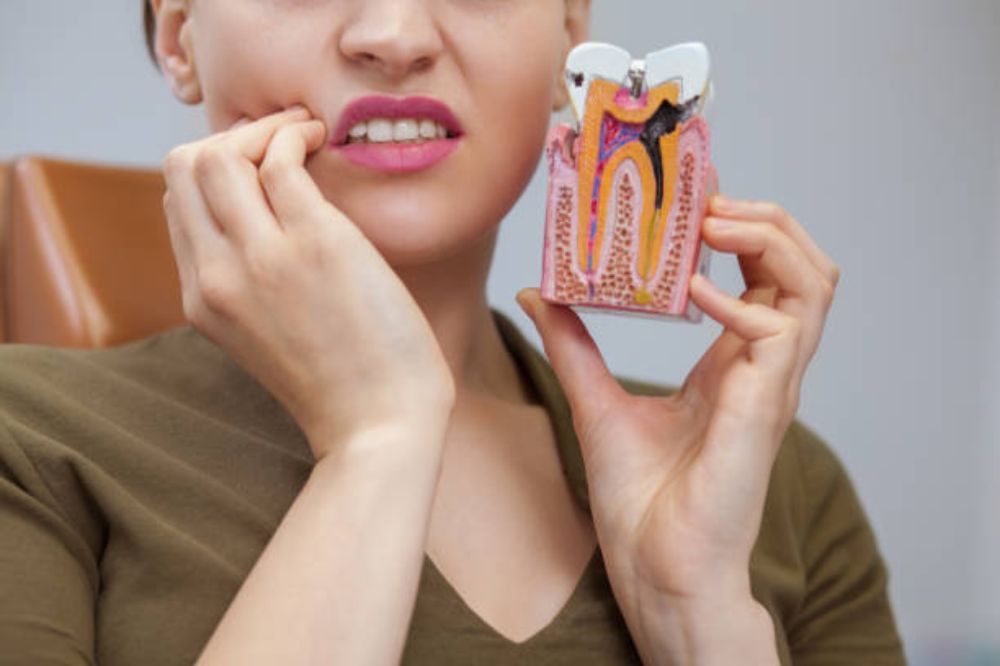
Tooth pain can happen to anyone. Sometimes the ache is minor and subsides by itself. Other times, the ache may be more severe and need immediate treatment. Understanding the difference between a normal toothache and a dental emergency will assist you in protecting your teeth and preventing more serious issues. If you are unsure, an emergency dentist in SW Calgary can examine your teeth and give you the right care.
What Is a Dental Emergency?
A dental emergency occurs when you experience sudden or severe pain, bleeding, infection, or injury in your mouth that cannot wait for a regular dental visit. If these conditions are not treated right away, they can lead to serious issues. When this is the case, you require an emergency dentist who can treat you right away.
Common Dental Emergency Symptoms
The following are the symptoms of a common dental emergency that should never be ignored
- Prolonged, severe toothache which does not stop
- Swollen face, gums, or jaw
- Bleeding in your mouth that is heavy
- Loose tooth or a tooth knocked out
- A cracked or broken tooth that is causing pain
- Numbness or loss of sensation in your face
- Signs of infection, e.g., pus or fever
If you notice any of these, you may need urgent treatment from a dentist in SW Calgary.
Types of Dental Pains That Are Emergencies
1. Severe Toothache
A strong or persistent toothache can be a sign of infection within the tooth. This infection will extend to the gums or the jaw if neglected. An immediate visit to the dentist saves the tooth.
2. Pain with Swelling
If your gums or face are swollen and you have pain, it could be an abscess. An abscess is a pus infection around the tooth root. This is a serious issue and requires emergency dental treatment to ensure the infection does not spread.
3. Pain from a Knocked-Out Tooth
If your tooth has been loosened by an accident, you might experience pain in addition to bleeding. This indicates a dental emergency. If you receive immediate treatment at the right time, the tooth can be repositioned in the socket by your dentist.
4. Broken or Cracked Tooth with Pain
Not every broken tooth needs emergency treatment. Deep cracks or very severe pain caused by the breakage could mean an emergency dentist visit is needed. Such damage could leave parts of the nerve in the tooth exposed.
5. Pain After Dental Work
It’s okay to have some mild pain following fillings, crowns, or other procedures. Severe pain that lasts for numerous days or is accompanied by swelling indicates that something is probably not right. Therefore, an urgent oral check from a dental professional is required.
Difference Between Normal and Emergency Dental Pain
It is sometimes difficult to tell whether your toothache is an emergency. Here’s a helpful table
|
Type of Pain |
Normal Pain |
Emergency Dental Pain |
|---|---|---|
|
Mild sensitivity to hot/cold |
Common, not urgent |
Severe pain that lasts long time |
|
Small discomfort when chewing |
Can’t wait for a regular visit |
Sharp or constant pain while biting |
|
Pain after eating sugary foods |
May signal cavity, not urgent |
Pain with swelling or pus |
| Gum soreness | It can be from brushing hard |
Bleeding gums with severe pain |
If your pain falls into the emergency column, you should not delay treatment.
Why Immediate Care Matters
Ignoring dental emergency symptoms can make the problem worse. An untreated infection will spread to other areas of the body. An untreated tooth crack may cause damage to nearby teeth. So early treatment by an emergency dentist not only helps to prevent these higher health risks but also keeps your smile safe.
What To Do If You Have Emergency Dental Pain
If you are experiencing a dental emergency
- Breathe deeply and call a dentist right away.
- If a tooth is avulsed, hold it moist in milk or saliva until you arrive at the dentist.
- For swelling, apply a cold compress to the face to decrease pain.
- Do not attempt to treat pain or infection that is severe at home.
Key Takeaway
Pain in any of the teeth should never be ignored, but not every tooth pain qualifies to be termed an emergency. Learning the signs of a dental emergency helps you act quickly. Sudden teeth pain along with swelling, infection, avulsions, or in all instances where extreme pain is combined with bleeding are all dental emergencies. Immediately upon identification of any of these symptoms of a dental emergency, an emergency dentist should be consulted. Prompt action will aid in saving your teeth, safeguard your health, and provide you with relief from pain.
Severe Tooth Pain? Call Your Emergency Dentist!
In case of need for trusted dental services, Atlas Dental Centre is here to assist you. Our expert team offers safe and professional care to patients of all ages, from regular check-ups to emergency services, helping to keep your teeth and gums healthy. Call Atlas Dental Centre today.
